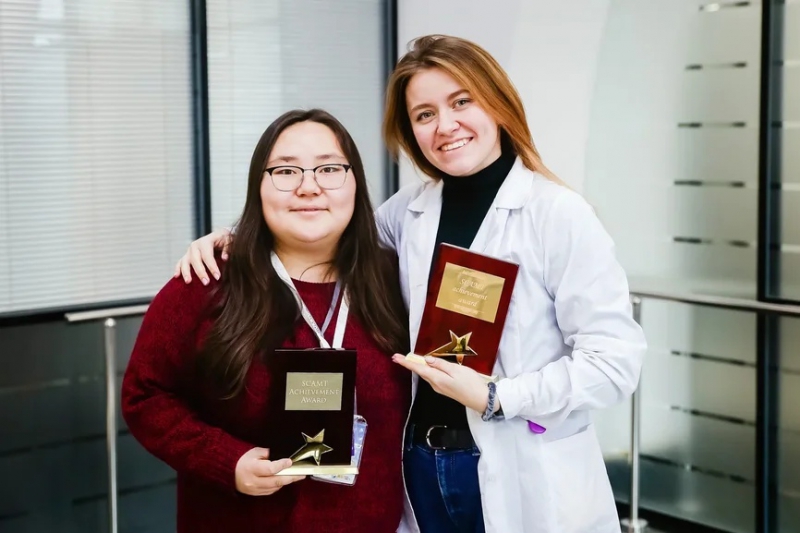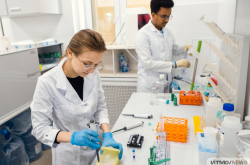The researchers at SCAMT work on a wide range of interdisciplinary projects: from chemistry to materials science, from food technology to microbiology, and so on. What do you specialize in?
Darya Nedorezova: I’m a second-year Master’s student. My subject area is biotechnologies, and I study in a program called Molecular Biosensing and Biorobotics. I initially applied to a program taught in Russian, but when a position opened up in an English-language program, I decided to transfer, since its curriculum closely matched the topic of my thesis, which is about DNA nanomachines.
More specifically, I’m developing a DNA nanomachine for the selective induction of apoptosis of cancer cells as part of Prof. Dmitry Kolpashchikov’s research team. DNA nanomachines are a series of synthetic single-strand DNA combined into a specific structure and possessing a set of functions; in our cases, these are functions of unwinding and cleavage of target RNA molecules. We’re also starting work on a major grant with the goal of developing a cartridge for the detection of pathogens in the central nervous system. My task in the project will be to design DNA structures that will be responsible for the visual detection of pathogens.
Aziza Sharsheeva: I’m a second-year Master’s student, too, but my subject area is microbiology. Right now I’m working on MOF (Metal-Organic Frameworks). Due to their porous structure, MOF can encapsulate various compounds. Some MOF are also sensitive to external chemical effects, such as the pH-sensitive MOF.
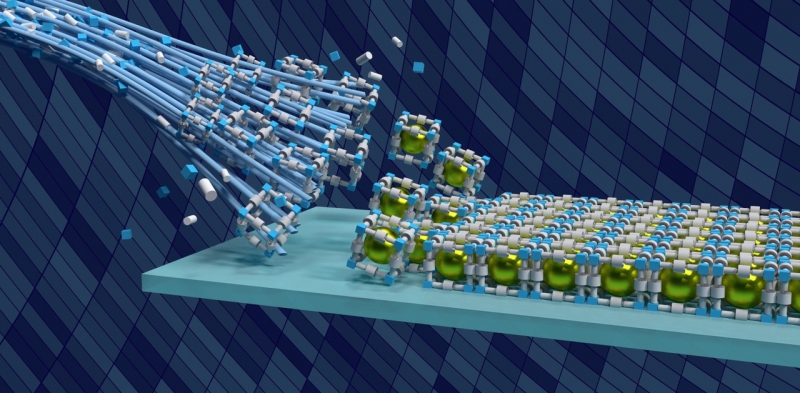
Here at SCAMT, we create pH-sensitive photoactive materials for the monitoring and treatment of oncological diseases, as well as drug delivery. The pH in healthy cells is neutral, but acidic in cancer cells. We use TiO2 nanotubes to grow MOF capable of encapsulating drugs. They remain stable when the pH is neutral, but dissolve once the environment becomes acidic. This way, our product will deliver drugs to cancer cells while reducing the harm done to healthy ones.
The SCAMT Achievement Award is given for contributions to the development of the laboratory, which don’t necessarily have anything to do with scientific work. What do you do outside of research?
Daria: In addition to research, I’m involved in administrative work, such as purchasing materials and equipment for the lab. It might not be very scientific, but it’s very enlightening to learn about every stage of research. It’s important to understand where resources come from and how they are spent. Despite being just a Master’s student, I already know the ins and outs of acquisition and spending of research grants.
I’m involved in organizational activities, as well. We recently hosted the SCAMT Workshop Week during which I curated the “Build a DNA nanobot” course. I also work with first-year Master’s students, helping them become part of the research team, teaching them about our methods and giving them a hand with their own research.
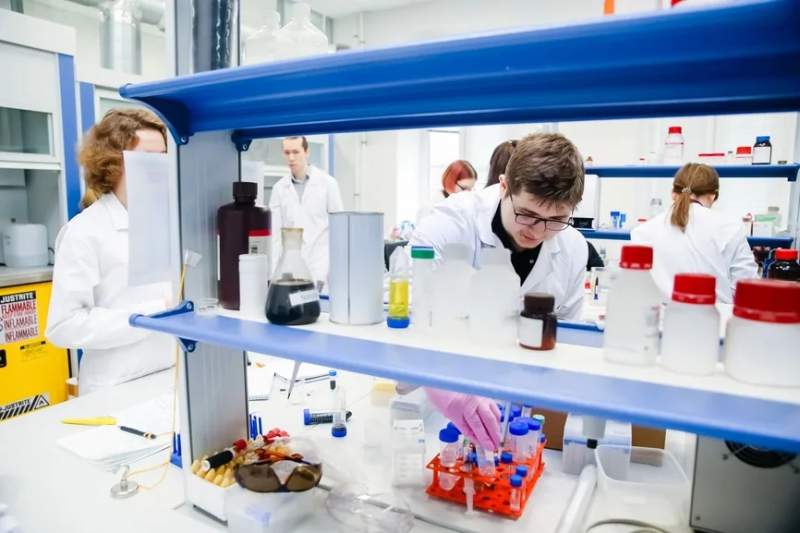
Aziza: The ChemBio Cluster head, Alexander Vinogradov, curates several teams, including the industrial team which I am a part of. We create products and introduce them to the market. We’ve started the small innovative enterprise Innocolloid and in 2018 we’ve launched eight new innovative products, two of which are pharmaceuticals.
The first one, called “First Aid”, is based on boehmite and restores skin tissue while preventing the formation of scar tissue. It also exhibits antibacterial effects. It has passed all trials and received certification.
The second, “Virus and Bacteria Blocket”, is a universal anti-virus treatment for flu and the common cold. It’s based on chlorine dioxide, which is known to be the most powerful yet safe antibacterial agent. We’ve developed a technology that allows us to selectively sorb chlorine dioxide and later desorb the active material into the environment.
All work on these products is done within the confines of the ChemBio Cluster: from the development of ideas and research to certification and logistics. As a member of the industrial team, I work with documentation and procurement of supplies. I also work with certification services, which is important because there is a great deal of testing to be completed before a product is put on the market.
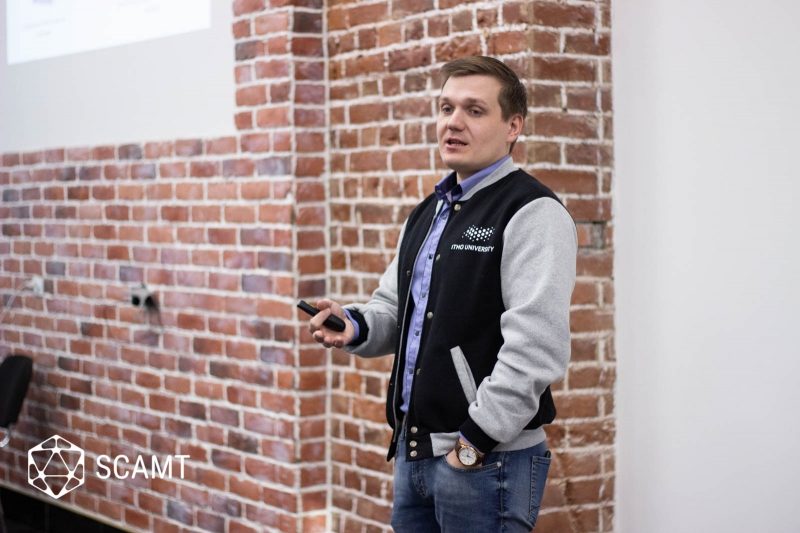
And finally, I’m also involved in organizational work. During the SCAMT Workshop Week, I curated the course focused on metalorganic compounds.
Have you always been interested in biotechnologies?
Daria: To be honest, I always dreamed of working in construction. In a way, it’s still true: I construct DNA. I’m from Siberia, and after I graduated from school, I applied to all the construction universities in my region, as well as the Tomsk Polytechnic University, just out of interest. When I applied to the TPU, I wasn’t really counting on enrolling there, so I picked a major that seemed interesting: biotechnologies. Their brochure about genetic engineering was very nice. Later, as the deadline neared for when I had to choose where to go, I realized that I wanted to study somewhere nice and prestigious. That was the TPU. And that’s how I got into biotechnology.
After I got my Bachelor’s degree, I decided to leave Siberia. At that point, I was already familiar with ITMO University and the department of chemistry and molecular biology. The topics taught there were quite similar to what we already knew, and gave us the opportunity to learn more about molecular biology. We both got accepted through the portfolio contest without even visiting St. Petersburg once.
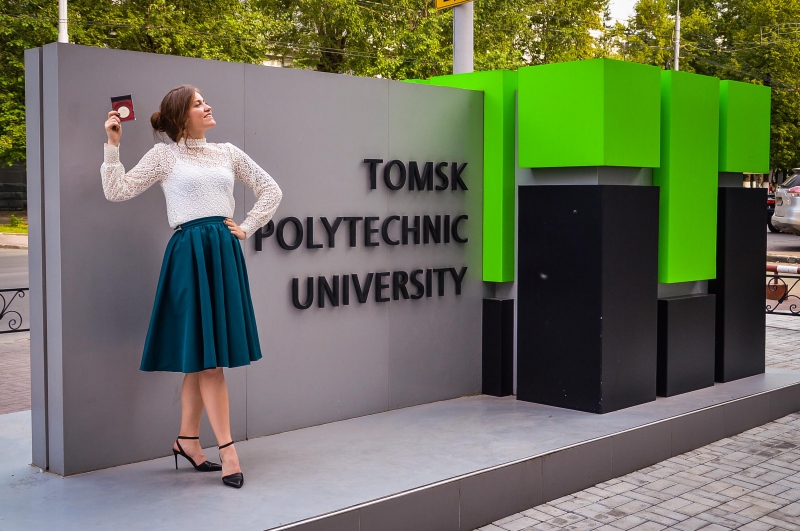
Aziza: My parents always wanted me to be a doctor, and prepared me for it starting in school. I went to a medical lyceum (a type of school in Russia – Ed.) with a focus on biology, but by the time I was graduating, I knew that medicine just wasn’t for me.
Luckily, our organic chemistry teacher noticed my interest in chemistry: she helped me after classes and gave me additional, more complex tasks. Knowing that I wasn’t keen on medicine, she gave me a list of options when it came time to choose a university. In the end, I went with the Tomsk Polytechnic.
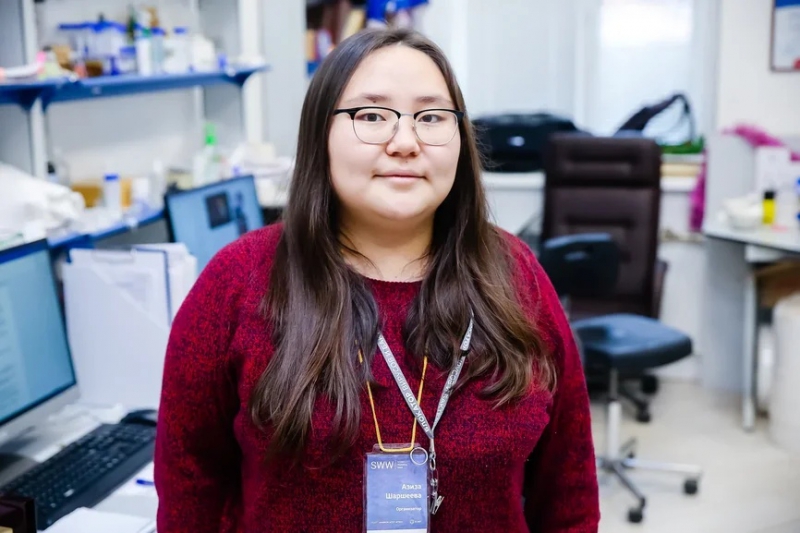
One day, after I had already graduated from the TPU, Darya paid me a visit and suggested going to St. Petersburg with her. I didn’t know anything about ITMO, and the first thing I saw when I googled it was that it is the alma mater of the first President of Kyrgyzstan, Askar Akayev. I’m Kyrgyz myself, and I saw that as a sign. That very evening we decided to apply to ITMO.
A common sentiment these days is that to succeed in modern science, you can’t spend your life working in just one field of research, and you also need to be flexible and sociable. Would you agree with that?
Daria: It all depends on your field and where you work. But, in my opinion, those who work in chemistry, biology, and life sciences in general, really do need to stay in touch with people, to understand the needs that exist in the society.
Sure, we’re looking for the cure for cancer, but so are hundreds of other researchers around the globe! Aside from our own research, we need to stay up to date on others’ latest research, to know about the latest innovations and to collaborate with other laboratories. I agree that we are entering an era when it’s no longer enough to be a biologist; you also need to be a chemist, an engineer, and a physicist. It’s at the intersection of sciences where we can learn something truly new, interesting and useful.
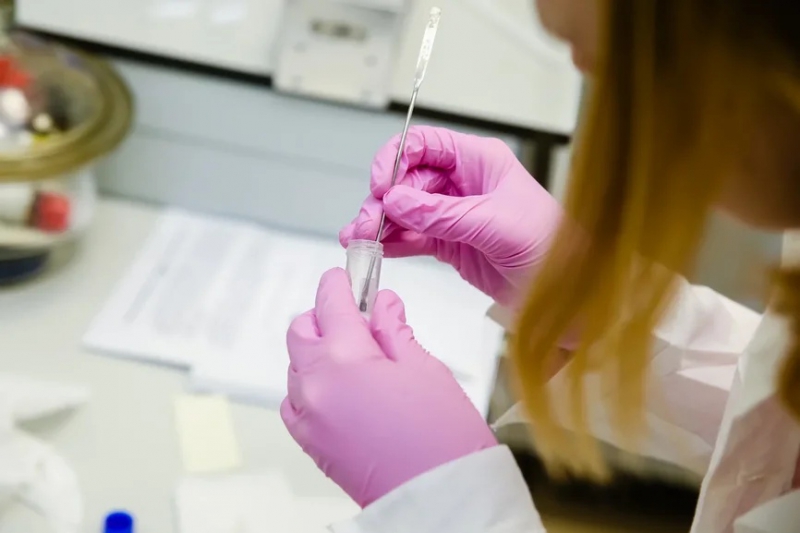
Aziza: In my understanding, the modern scientist is someone who can do their research and also take care of administrative tasks: search for grants, take part in competitions. Of course, we all choose our own field, but if you spend years within its limits, sooner or later you’ll hit a dead end. It’s not bad to know everything about your trade, but it’s also limiting.
It’s great that SCAMT, unlike many traditional labs where the administrative part of work is closed off to students, lets us try our hand at different things. They say: “Do you want to do this? Then do it. If you don’t – that’s your right as well; it’s perfectly normal to stay focused entirely on research”.
As a result, the staff of the lab pass every stage, from concept work to release on the market, together. This is because we can do it, and we know which opportunities we have and where to get them. Most importantly, the students get to take part in management. As Bachelor’s students, we used to believe that we’ll have it made once we graduate; as Master’s students, we now realize that it’s not enough to simply do science, but that we must also develop ourselves.
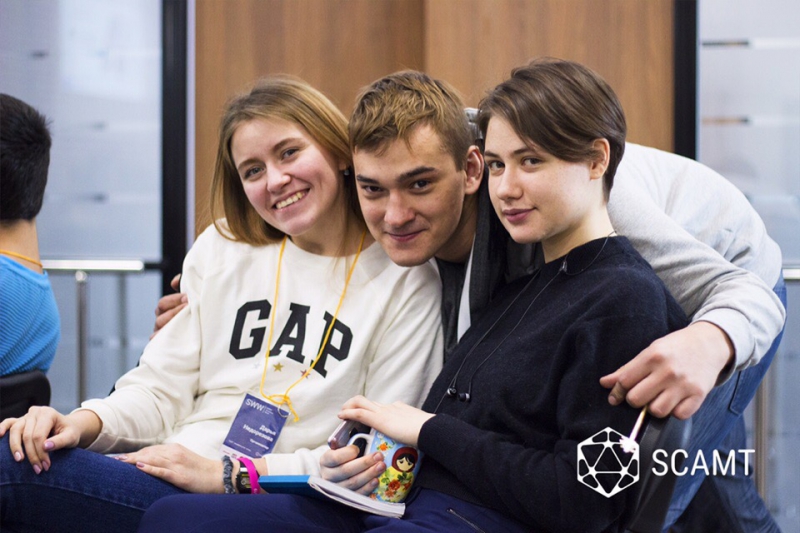
What are your plans for the future?
Aziza: After getting my Master’s, I plan to enroll in a double-degree program and get my PhD at ITMO University and the University of Leipzig in Germany. And since I’m already working in the industry and enjoying it, I want to continue doing that and try new things in the same vein.
Daria: I also plan to continue my PhD studies, mostly because I’m genuinely interested in what we’re doing. DNA nanomachines and nanotechnologies are a relatively new field with great potential in terms of practical applications. I’d like to develop this field in Russia, because, unfortunately, many scientists here aren’t interested in it, while regular people don’t even understand it. Take GMOs, for instance, which many think will turn us into mutants. Which is, of course, not true.
I did an internship in the US not long ago, where I presented a project I’m working on at a conference. The response was quite lively, which, regretfully, was not the case in Russia. I’d like to see the people in Russia learn more about DNA technologies and understand them better. Aside from research, I want to help spread knowledge among the public through popular science formats, such as lectures. I’ve already participated in one such project and would like to do more of that in the future.
